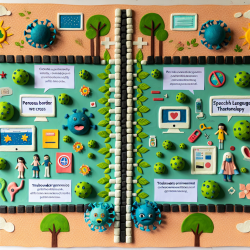Introduction
In the ever-evolving landscape of healthcare, the role of Registered Nurses (RNs) in bridging the gap between primary care (PC) and public health (PH) is becoming increasingly significant. A recent scoping review by Swanson et al. (2020) sheds light on the multifaceted roles RNs play in this crucial collaboration. This blog aims to explore these roles and provide actionable insights for practitioners looking to enhance their skills and contribute to improved health outcomes.
The Four Pillars of RN Roles in PC/PH Collaboration
The scoping review identified four key roles that RNs embody in the collaboration between primary care and public health:
- Relationship Builder: RNs are pivotal in establishing and nurturing relationships across various levels of the healthcare system. Their interpersonal skills enable them to connect with patients, families, and other healthcare professionals, fostering a collaborative environment.
- Outreach Professional: RNs extend healthcare services beyond traditional settings, reaching out to communities and individuals who may not have easy access to care. This role is vital in addressing health disparities and promoting equity in healthcare delivery.
- Programme Facilitator: RNs design, implement, and evaluate health programs that address specific community needs. Their expertise in program management ensures that initiatives are effective and sustainable.
- Care Coordinator: As care coordinators, RNs streamline patient care by coordinating services across different sectors. This role is essential in managing chronic diseases, communicable diseases, and maternity care, ensuring seamless transitions and continuity of care.
Implementing the Findings: Steps for Practitioners
For practitioners aiming to enhance their skills and impact, the following steps can be considered:
- Engage in Continuous Education: Stay updated with the latest research and best practices in PC/PH collaboration. Consider enrolling in workshops or online courses that focus on these areas.
- Foster Interdisciplinary Collaboration: Actively seek opportunities to collaborate with professionals from different disciplines. This can be achieved through joint meetings, shared projects, or interdisciplinary training sessions.
- Embrace Technology: Utilize telehealth and digital tools to enhance outreach efforts and improve patient engagement. Technology can also facilitate better communication and coordination among healthcare teams.
- Advocate for Policy Changes: Work towards policy changes that support expanded roles for RNs in primary care and public health. Advocacy can lead to systemic changes that empower RNs to perform at the top of their scope of practice.
Encouraging Further Research
While the scoping review provides valuable insights, there is always room for further research. Practitioners are encouraged to explore areas such as the impact of RN-led interventions on patient outcomes, the effectiveness of specific collaboration models, and the barriers to successful PC/PH integration. Engaging in research not only contributes to personal growth but also to the advancement of the nursing profession as a whole.
To read the original research paper, please follow this link: The role of registered nurses in primary care and public health collaboration: A scoping review.










